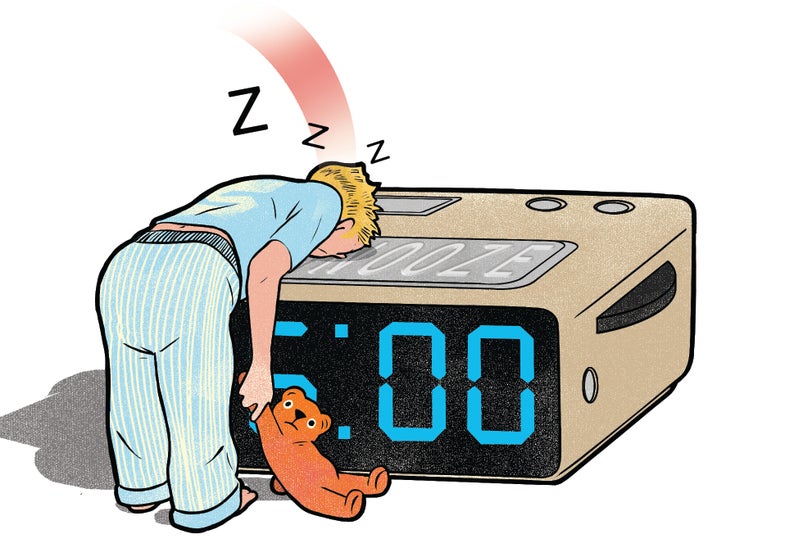Does Hitting The Snooze Button Help Or Hurt?
Short answer: Depends on when you hit it

Sleep that gets interrupted throughout the night can leave you sluggish and inept after you wake up. By the same token, the stretch of morning ups and downs caused by repeatedly pushing your alarm clock’s snooze bar could have deleterious effects. “You’re probably getting worse sleep during those 30 minutes [of snoozing] than you would if you just set your alarm 30 minutes later,” says Jeanne Duffy, a neuroscientist and sleep researcher at Harvard Medical School.
But snoozing could still have its benefits. Duffy has looked at “sleep inertia,” or the drowsy, distracted feeling (and physical weakness) that can linger after you wake up. The amount of sleep inertia you experience depends, in part, on the stage of sleep from which you’re jerked awake.
If you’re stirred from the deepest stages of slow-wave sleep, “you might have no idea where or who you are,” Duffy says. In that case, it might help to snooze some minutes more. That way you can reawaken from a different stage of sleep, such as REM, when your body is closest to its wakeful state. “It might make things better,” says Duffy. But if you’re in REM already, snoozing could send you deeper and make things worse.
Have a question? Tweet your science questions and quandaries to @PopSci with the hashtag #AskAnything, or email us at AskAnything@popsci.com.
This article was originally published in the July 2015 issue of Popular Science.